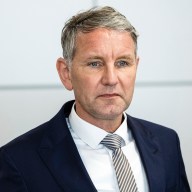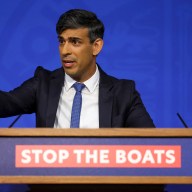OTTAWA – A Canadian departure from Kandahar in 2011 would seriously undermine NATO’s war in Afghanistan, said a U.S. counter-insurgency expert, who served as a special adviser to the alliance’s new ground commander, Gen. Stanley A. McChrystal.
The withdrawal of a small number of troops is not as big an issue as the loss of experience and credibility with local Afghans in what has become the most important battleground in the war-torn country, said Anthony Cordesman.
“It isn’t simply a matter of troop levels,” Cordesman, of the Centre for Strategic and International Studies in Washington, said in an interview with The Canadian Press.
“It’s a matter of experience continuity; having shaped the security presence in one of the most critical provinces in the country. And so would a Canadian departure seriously hurt NATO? The answer at least this point seems to be: Yes.”
Cordesman’s advice was sought by McChrystal, who has undertaken a 60-day review of the war’s strategy and is expected to appear before the U.S. Congress in September.
He said reluctant NATO countries must be pushed to “eliminate as many national caveats and restrictions on troops as possible” and there must be “a substantial number of additional US combat brigades” dispatched to quell the rising violence.
“Experts differ, but this could mean anywhere from three to nine brigades above the 21,000 additional forces that President Obama approved in the spring of 2009,” Cordesman wrote in a British newspaper this week.
Nine brigades equals about 45,000 troops – a political unpalatable prospect in Washington.
The plan also looks towards a major expansion of the fledgling Afghan army.
There is still a sharp internal debate about what kind of troop commitment McChrystal will present with his assessment, sometime after the Aug. 20 Afghan election.
In an interview with The Wall Street Journal, McChrystal said he recognized that Kandahar would need more reinforcements beyond the U.S. army Stryker brigade which is now arriving in the province’s outlying areas.
He suggested some of the 4,000 additional troops, already part of the U.S. surge but yet to arrive, could be redirected into Kandahar city to counter a growing Taliban influence.
It’s clear the U.S. has the troops to backfill the departure of Canada’s 2,850 soldiers and aircrew, but Cordesman said the not-so-subtle diplomatic campaign aimed at Ottawa is about recognizing how indispensable the Canadian contribution has been.
“The experience Canada has gained and the effectiveness of its civil-military operations have been particularly critical,” he said in a telephone interview.
“The U.S. can supplement this with troops and indeed it is. But those troops are not going to have the capabilities that Canada has developed over years of having been in the province.”
The Canadian staffed provincial reconstruction base has operated in “one of the most critical cities inside Afghanistan” and has dealt with “extremely complex political, economic and ethnic issues,” Cordesman added.
“I think NATO wants Canada to stay. I think anybody who has been operating in Afghanistan would like Canada to stay. The fact is, just because you do not have the largest contingent in Afghanistan doesn’t make the country’s role unimportant.”
The Conservative government has shown little sign that it intends to budge from the intended withdrawal date for combat troops of July 2011, despite pleas from the new secretary-general of NATO and hints from the Obama administration that it too wants Canadians to stick around longer.
“We’ve set a high standard that other countries can hopefully meet,” Defence Minister Peter MacKay said in an interview Tuesday.
“We have made a significant contribution. By 2011 we’ll have been there 10 years, twice as long as the Second World War. We’ve paid a high price in blood and treasure. I would say the new secretary general has a long list of other countries that he should cast his eyes towards first.”
MacKay said he considered Cordesman’s comments a tribute. In much the same vein the U.S. is adopting a system of benchmarks to measure progress in Afghanistan, something MacKay noted with pride.
It is an echo of the Canadian policy, where Ottawa – in extending the combat mission until 2011 – laid down a series of policy objectives it wanted to accomplish, including several signature development projects.
The U.S. proposal reportedly includes up to 50 benchmarks.
















